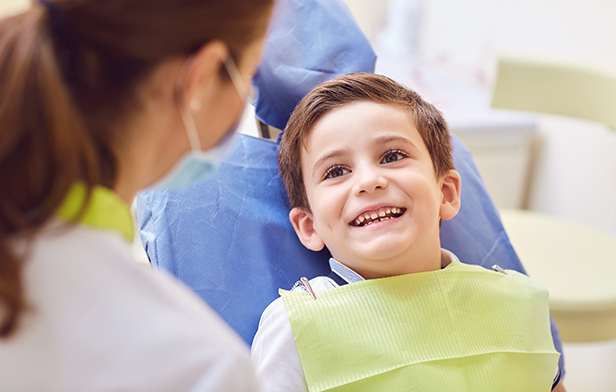Q&A: Baby Bottle Tooth Decay
Have you been hearing the term “baby bottle tooth decay” lately and are not quite sure what this refers to? If you are in the process of learning how to care for your infant’s oral health, this is a very important topic. Fortunately, by becoming familiar with this potential issue, you can easily protect your little one’s smile for a grin that remains healthy for years to come. Do yourself a favor and consider some helpful questions (and answers) that we often receive about tooth decay from new parents like yourself.
Questions and Answers: Baby Bottle Tooth Decay
Question: First, I am unsure about tooth decay – is this something that can affect babies or is this a disease that begins to occur once my child is somewhat older?
Answer: We would love to report that tooth decay is limited to an age group but it is not. Decay can affect the teeth of a patient of any age, from young to old. Even baby teeth need protection.
Question: What is baby bottle tooth decay? How does this affect an infant’s oral health?
Answer: Baby bottle tooth decay is a problem that occurs when a parent puts a baby to bed or down for a nap after giving him or her a sugary drink. This may also refer to giving your child a pacifier coated in something sweet (like honey). The sugar adheres to teeth, bacteria within plaque feed on the sugars, the bacteria digest the sugars and release acid, and those acids lead to tooth decay.
Question: What can I do to protect my child’s oral health against this problem as well as other potential issues?
Answer: If you are not sure what to do because you’re giving your child nutritious drinks (like formula or fruit juice), you have nothing to worry about. Simply clean your child’s smile after every feeding – this is particularly important before bedtime. Or, if you can, avoid giving your infant a sugary drink before a nap or bedtime.
filed under: Preventive Treatments



